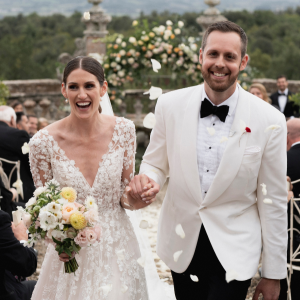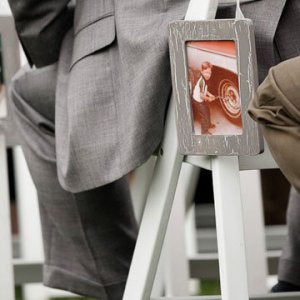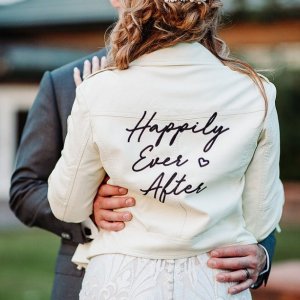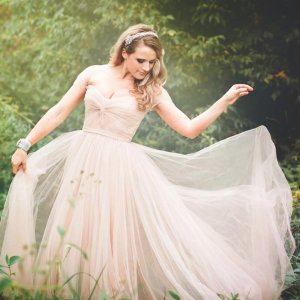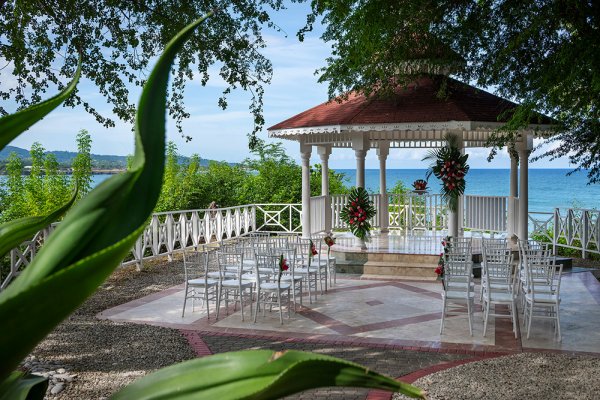One of the biggest questions you'll need to answer when booking your photographer or videographer is exactly how many hours of coverage you need. Not all weddings are created the same! Here's how to figure out your needs.

Photo: Adam and Becca Photo and Video
From the beginning, look for a professional that knows what a timeline looks like. "When it comes to timeline recommendations, it's always important to factor in what is important to the couple and not pressure them to do something they don't want to do simply for a better timeline. It's their day! With that said, it's just as important to work hand in hand with your vendors to create a smooth wedding day experience. Your photographer will often guide the wedding day timeline, so be sure to lean on them for what a timeline should look like. This is another good way to decide which photographer you'd like to hire. A photographer who doesn't know timeline prep vs. a photographer who builds a detailed timeline in collaboration with you and your planner are very different experiences and most likely have different price points. One thing we find to be really beneficial to our couples is that not only do we build out detailed timelines for them and work with their wedding planner, we also provide photo and video. This means the timeline will already be optimized for what you want and what your photographer and videographer need as well as what your wedding planner has said the entire day needs." —Becca Davis, Adam and Becca Photo & Video
Have an initial consultation. “As wedding videographers for seven years now, we know that planning a wedding can be, uh… stressful! When you're planning your wedding, if you're interested in hiring a videographer, there's some important things to consider to help streamline the process. This is important because their time impacts your overall budget. You want to make sure you have them there long enough to get the footage you want — but not pay for excessive hours you don't really need. Here are some tips on figuring out the right amount of videographer time for your wedding. First up, have an initial consultation. The best way to determine how much time you need starts before you even book. Have an initial video call or in-person meeting with prospective videographers. This gives you a chance to discuss your wedding vision and must-have shots. It also allows the videographer to understand important details like your ceremony length, the number of events planned (i.e. first look, family photos, reception entrance), and the overall timeline. They can then make an informed recommendation on how many hours you'll need." —Eriksen Dickens, Peek Wedding Films
Plan plenty of time for the quiet, intimate moments. "Drawing from my extensive experience of photographing weddings for over a decade, I often advise couples to consider scheduling ample time for those quiet, intimate moments. Your wedding day can be a whirlwind of excitement and activity, which is why it's essential to plan moments of reflection and time alone as newlyweds. These cherished interludes allow you to connect on a deeper level, savoring the joy of your commitment without feeling rushed. As an experienced photographer, I understand the significance of these quiet moments, they not only provide opportunities for stunning photos but also create lasting memories that you'll treasure for a lifetime." —Natasha Gillett, Natasha Gillett Photography
Consider your final video length. "Do you want a short wedding highlights video? Or an extended cut with your full ceremony and all the speeches? Talk through what you envision for the final edited video, as length will impact how much raw footage is required. For example, a 1-3 minute highlights reel may only require 2-3 hours of the videographer's time on your wedding day. But if you want a long form, documentary-style film that is 45-90 minutes, you may need 8-10 hours of coverage.” —Dickens
Factor in travel time. "Don't forget that your videographer may need to travel a ways on your wedding day. They may also have to travel to multiple locations. Think through travel between venues for getting ready, the ceremony, family photos, reception, etc. You'll want to account for driving, set up and tear down time in between events. This ensures your videographer can get the footage they need without being rushed." —Dickens
Schedule interviews and pre-wedding events. "It's not just the wedding day itself you may need video coverage for. Talk with your videographer about scheduling things like engagement or 'love story' interviews, a bridal session/gown reveal, or rehearsal dinner highlights. Adding on these extras will increase the total hours needed, but it can give you a more robust final product, capturing your entire love story." —Dickens

Photo: Adam and Becca Photo and Video
Remember that collaboration is key! "Collaboration is key to orchestrating a seamless and beautifully documented wedding day. I recommend that the photographer works closely with the planner to craft a well-coordinated timeline that ensures every detail falls into place. By partnering with the wedding planner, we're able to sync our expertise and vision, creating a wedding day schedule that optimizes both the logistical and visual aspects of the event." —Gillett
Consider "getting ready" footage. "Many couples enjoy seeing the lead up to the ceremony, like wedding morning preparations with their bridal parties. If you want shots of hair, makeup and getting dressed, account for having your videographer arrive early enough to document this. 'Getting ready' footage often requires having a second videographer so groom and bride preparations can be captured simultaneously." —Dickens
Have a shot list and timeline. "Giving your videographer a detailed itinerary of the wedding day is key. This helps them know exactly which moments they need to be present for and how to allocate their time. Provide a schedule of events, and even a 'must have' shot list of moments that are important to you. accounting for traveling, setting up, and tearing down equipment at each location. This will take more time than just showing up right before the ceremony start." —Dickens
Trust your videographer's recommendation. "With all that said, an experienced wedding videographer will know how to translate your vision into the right number of hours needed. While your input is important, trust their expertise and recommended timeline. They want to make sure you get a wedding video you'll treasure forever — without excess time that inflates your costs. With clear communication upfront, you can strike the perfect balance and stay within your videography budget. The best wedding video perfectly captures the essence of your special day. By determining the right amount of time with your videographer from the start, you can relax knowing all your cherished moments will be preserved. Just follow these tips, align on a plan with your chosen professional, and enjoy every second knowing your wedding love story will be beautifully visualized for years to come." —Dickens
Keep a few quick rules of thumb in mind for standard package options. "Most photographers offer either 6, 8, or 10 hours of coverage. We have a few key rules of thumb to know which might be best for you! Six hours of coverage is typically best for a wedding day with one venue, no first look, and no reception send-off coverage. To have getting ready photos, a second photographer is necessary, but that won't always guarantee enough time. In most cases, eight hours can be thought of as the default amount of wedding day coverage needed to capture getting ready through special reception moments, like sunset photos and fake sparkler exits. And 10 hours of coverage is best if you are having a longer ceremony, traveling between multiple venues or photo spots, want getting ready and reception send-off coverage, or are having an early ceremony, such as a Catholic Mass, but reception at a traditional time." —Davis

